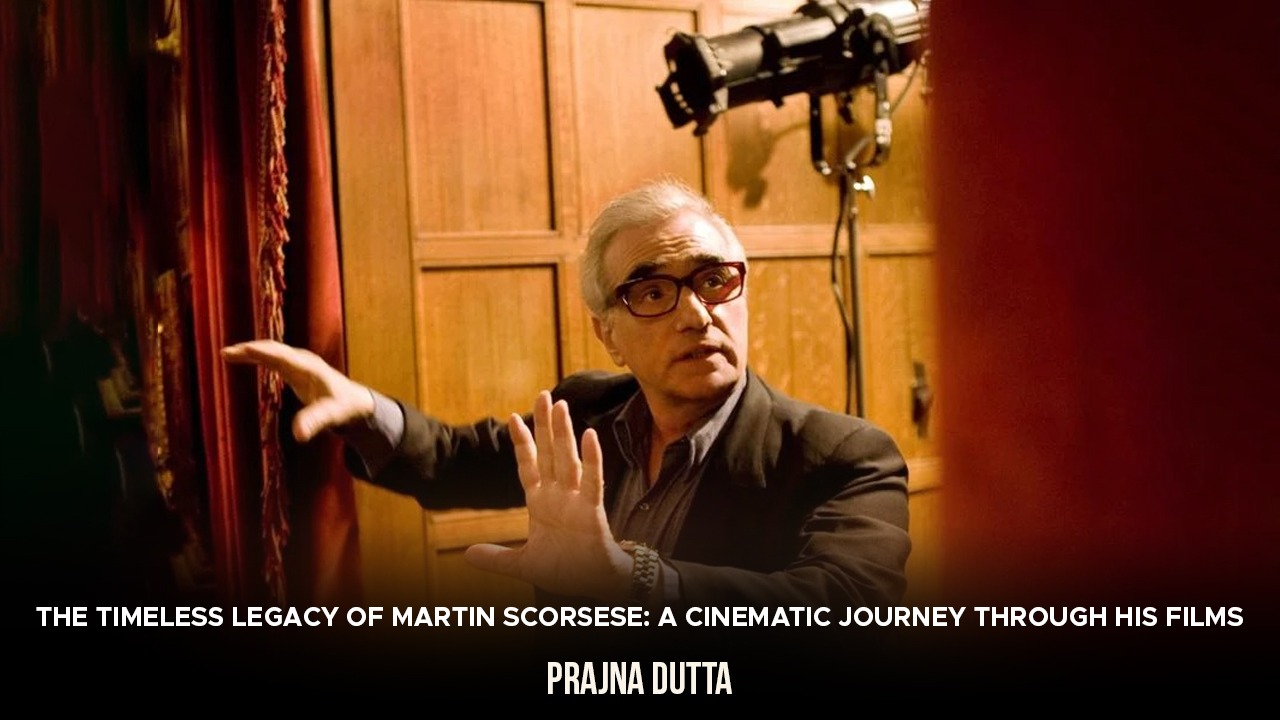Martin Scorsese is a name that resonates deeply within the realm of cinema. His unparalleled vision and masterful storytelling have left an indelible mark on the film industry, earning him a place among the most revered and influential directors in the history of cinema. With a career spanning over five decades, Scorsese has crafted a diverse and captivating body of work that has consistently pushed the boundaries of filmmaking, exploring the depths of human experience with unflinching honesty and raw emotion. From gritty urban dramas to sweeping historical epics, Scorsese's films stand as a testament to his artistic brilliance and unwavering commitment to the craft of storytelling.
Early Career and Breakthrough:
Martin Scorsese's journey to cinematic greatness began in the 1960s, where he honed his skills as a director and storyteller. His early works, including "Mean Streets" (1973) and "Taxi Driver" (1976), showcased his penchant for gritty urban dramas and his ability to capture the raw intensity of human emotion. "Mean Streets" introduced audiences to Scorsese's trademark kinetic style and complex characters, while "Taxi Driver" delved deep into the psyche of a disturbed loner, portrayed by Robert De Niro in a career-defining role. These films not only solidified Scorsese's reputation as a director to watch but also marked the beginning of a longstanding creative partnership with De Niro, a collaboration that would yield some of the most iconic films in cinematic history.
Exploration of Crime and Morality:
Scorsese's fascination with the criminal underworld and the complexities of morality has been a recurring theme throughout his career. Perhaps no other film exemplifies this better than "Goodfellas" (1990), a tour de force of American cinema that chronicles the rise and fall of mobster Henry Hill, portrayed with mesmerizing intensity by Ray Liotta. With its frenetic pacing, razor-sharp dialogue, and unflinching portrayal of violence, "Goodfellas" stands as a crowning achievement in Scorsese's filmography, showcasing his unparalleled ability to immerse audiences in the tumultuous and morally ambiguous world of organized crime.
In a similar vein, "The Departed" (2006) further solidified Scorsese's mastery of the crime genre, earning him his long-overdue Academy Award for Best Director. Set against the backdrop of the Irish mob in Boston, "The Departed" weaves a complex tapestry of betrayal, loyalty, and moral ambiguity, propelled by powerhouse performances from an ensemble cast that includes Leonardo DiCaprio, Matt Damon, and Jack Nicholson. The film's taut narrative and relentless tension serve as a testament to Scorsese's ability to captivate audiences while exploring the darker facets of human nature.
Epic Tales and Historical Dramas:
Beyond the realm of crime dramas, Scorsese has also demonstrated a remarkable versatility in his storytelling, venturing into the realm of epic historical dramas with films such as "Gangs of New York" (2002), "The Aviator" (2004), and "Hugo" (2011). "Gangs of New York" plunges viewers into the volatile world of 19th-century New York City, delivering a visceral and unflinching portrayal of gang warfare and social upheaval. Meanwhile "The Aviator" offers a sweeping portrayal of the life of eccentric billionaire Howard Hughes, played with mesmerizing depth by Leonardo DiCaprio, while "Hugo" ventures into the realm of family-friendly fantasy, showcasing Scorsese's ability to infuse his storytelling with a sense of wonder and enchantment.
Exploration of Faith and Redemption:
Scorsese's exploration of faith and redemption has been a recurring theme throughout his career, culminating in the masterful "The Last Temptation of Christ" (1988) and "Silence" (2016). "The Last Temptation of Christ" stirred significant controversy upon its release, offering a thought-provoking and deeply human portrayal of the life of Jesus Christ, portrayed with raw emotional intensity by Willem Dafoe. Scorsese's unflinching examination of Christ's inner turmoil and ultimate sacrifice challenged traditional religious narratives, sparking debates about the nature of faith and the human experience.
In "Silence," Scorsese delves into the harrowing world of 17th-century Japan, where two Jesuit priests, played by Andrew Garfield and Adam Driver, embark on a perilous journey to locate their missing mentor and spread the teachings of Christianity. As they confront unimaginable persecution and wrestle with their own faith, the film poses profound questions about the nature of belief, suffering, and the silence of God. Through these films, Scorsese demonstrates a profound understanding of the human condition and a willingness to grapple with profound existential questions.
Legacy and Influence:
Martin Scorsese's impact on cinema extends far beyond the screen, as he has also been an ardent advocate for film preservation and a champion of the medium's rich history. His founding of The Film Foundation, a nonprofit organization dedicated to the preservation of classic and historically significant films, reflects his commitment to safeguarding the legacy of cinema for future generations. Furthermore, his passion for film history is evident in many of his own works, which often pay homage to the cinematic traditions that have shaped his artistic sensibilities.
As a director, Scorsese's influence can be felt across generations of filmmakers, many of whom have been inspired by his bold storytelling, innovative visual style, and uncompromising dedication to his artistic vision. His collaborations with iconic talents such as Robert De Niro, Leonardo DiCaprio, and editor Thelma Schoonmaker have yielded some of the most enduring and impactful films in modern cinema, solidifying his status as a true auteur whose creative imprint will be felt for years to come.
In conclusion, Martin Scorsese's films stand as a testament to the power of storytelling and the enduring impact of visionary filmmaking. From his early forays into gritty urban dramas to his exploration of epic historical narratives and profound meditations on faith and redemption, Scorsese has consistently pushed the boundaries of cinematic expression, leaving an indelible mark on the medium. As audiences continue to be captivated by his timeless works, it is evident that Martin Scorsese's legacy as a master storyteller and cinematic pioneer will continue to inspire and resonate for generations to come.

Comments